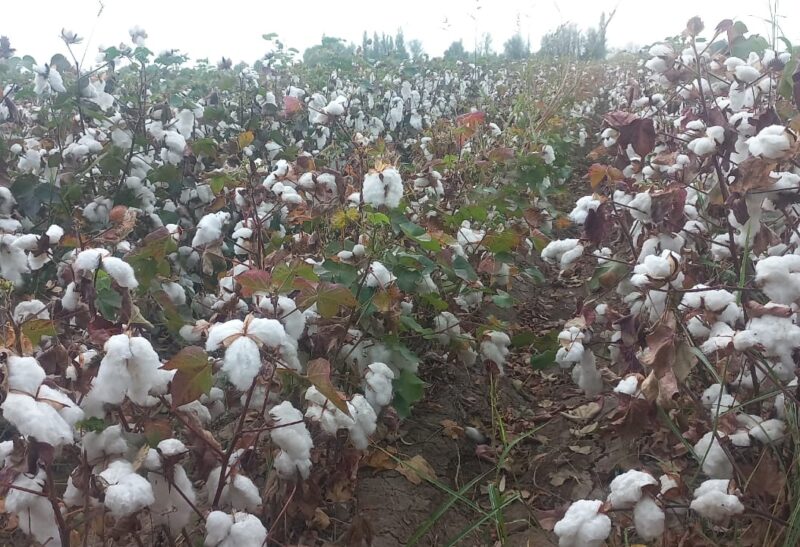
The residents of Shikhly, a small village in Azerbaijan’s northern Qazakh district, are increasingly frustrated over a persisting trash problem local authorities have failed to resolve.
‘A trash can is probably not very expensive. It’s not as if you have to spend millions from the state budget on it. Is it really such a big investment that it’s impossible to get one or two for our village?’, a local says.
Nestled along the Baku-Alat-Gazakh-Georgia highway between hilly fields and the Kura river, the village is just a few kilometers away from the Red Bridge border crossing into neighboring Georgia. Like in many rural areas, there is no systematic approach to waste management, and environmental pollution is a ubiquitous problem. Without access to garbage bins, villagers dispose of their waste in the nearby river or its surrounding area.
The growing dump was reportedly cleaned out only once, and Shikhly residents say they are burdened by the constant foul smell, the clouds of flies during the summer heat and the rubbish that is widely scattered across the village when the wind blows. After unsuccessful complaints to municipal authorities, they hope that increased publicity through Meydan TV coverage will support their case.

‘We have asked the municipality many times to provide us with garbage bins. It’s necessary to have such equipment, we do not ask for much’, says Shikhly resident Huseynuglu Mammadov. ‘Every village needs to have a place to dispose garbage. Is that not the responsibility of the municipality?’
A landfill alone, however, is not enough. Collection is another issue, as the waste currently piles up in heaps. ‘We don’t know what to do’, Mammadov continues, ‘We try to cover the waste, but animals dig everything up again. Are we supposed to get rid of the garbage ourselves? Then what is the municipality for? We requested the waste to be collected and asked for help but nothing happened.’

Another villager worries about the safety of children playing in the area and the cattle that strolls around the site looking for edible leftovers.
‘The garbage accumulates for months, which can cause diseases’ Elshan Aliyev says, ‘We eventually have to burn it, but in winter, when it rains every day, not even that is possible.’
He reiterates that all their complaints have gone unheard. ‘Nobody looks after our village. What are we supposed to do, should we all move to the city?’

The Shikhly municipality initially agreed to speak to Meydan TV but could later no longer be reached for comment. Qazakh district executive authorities told Meydan TV that appropriate measures will be taken, arguing that a delay must be the reason for the village’s trash problem, and that it should be easy to solve.
‘Municipalities regularly clear the garbage dumps in villages’, a representative said, ‘We will get in touch and the problem will soon be resolved. There is no reason for concern.’
Despite considerable
efforts
so strengthen Azerbaijan’s waste management strategy, the disposal and recycling of garbage remains a challenge. According to an
OC Media report
from March this year, only a small percentage of the more than 1.2 million tons of waste produced in Baku alone is sorted and treated. While legislation on waste management and keeping public spaces clean is in place, its effectiveness is doubted. For
small towns and villages
, waste management is an even bigger concern, as the lack of necessary infrastructure and capacity leads to increased littering and environmental pollution.



